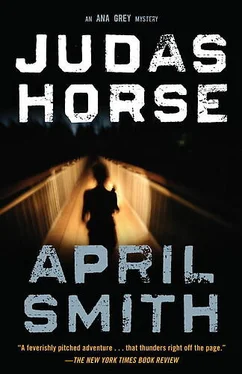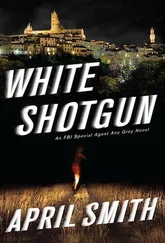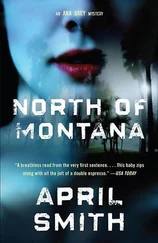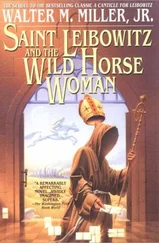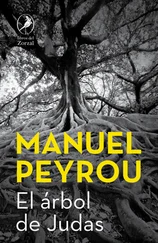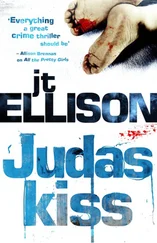The boys charged off the edge of the pool, gleaming bellies white as those of frogs. I did not jump up and wave at my grandfather. I did not want to leave that lawn chair, ever. It wasn’t just the considerable fear of telling him about Steve, which, by extension would be a statement that I’d actually had sex with a man and was continuing to do so. Even though I had barely left the grounds of the Academy, I realized there in those hothouse corridors, I had finally seized on a clear identity, and in that clarity was liberation. I was free to fall in love, to make mistakes, be harangued and harassed, but they never shut me down. Just the sight of my grandfather threatened my new pride in being Ana; I knew he would turn my achievements into competition with him. Already I was looking back on new agent training as a bright moment of independence, in whose light I was able to shine because I had been on the other side of the country, away from Poppy.
There was a kamikaze scream and tepid water rained on my sandals. You did not just enter Poppy’s world. You surrendered to it. I forced myself out of the chair and headed for the pool gate.
“No running,” I told the boys.
Iknocked. The curtain peeled back and there was the man who had raised me, not giving anything to the steamy morning light but a glimpse of grizzled cheekbone and a shank of nose, squinting between the brown folds of fabric like the beat cop he had been forty years ago, cagey as ever.
But then the door opened wide and the sun found his quick blue eyes.
“Annie!” He grinned and crooked an elbow around my neck, pulling me close. His leathery skin smelled of barbershop spice.
“How are you?” I asked.
“Goddamn airlines” was his reply.
The door swung shut. He had not turned on the lights, and the suitcase sat unopened on a shiny quilted bedspread the color of ripe cherries. It occurred to me I had never been in a hotel room with my grandfather.
“Want some ice?”
“What for? It’s cold as a witch’s tit in here.”
“Poppy. Don’t. That kind of talk exploits women,” I announced crisply.
“I don’t know what you’re talking about.”
It didn’t matter; I liked the sound of my brave new voice. I had endured. I was almost an FBI agent. I could make pronouncements now.
“You sure you don’t want something from the soda machine?” “What’s the hurry? Take a load off.”
I plunked down on the bed. The frame wobbled like Jell-O, dipping me up and down as Poppy unpacked the old suitcase that had belonged to my mother, Gwen. It matched a makeup case she used to own, “a train case,” they called it, with unfolding trays that would rise up and present their treasures as you opened the lid. She died of liver cancer when I was fourteen. My father was an immigrant from El Salvador, a man I barely knew. I remember my mom as a passive and defeated person, but she must have had moxie to fall in love with a brown-skinned man in the 1960s. It would be years before I understood the circumstances under which my father, Miguel Sanchez, disappeared.
At a moment like this, you crave completion — parents, aunts and uncles and cousins, noisy and embarrassing, to shower you with affirmation and envy. Steve had a ton of family coming down from West Virginia; it was unsettling to be in that ice-cold motel room with Poppy, alone.
“So,” I asked him, “any words of wisdom as I go out into the big bad world?” He considered. “My father always told me, ‘Wear a rubber.’” “Nice.”
“What’s the matter?” he teased. “Does that exploit women, too?” Just outside the window was a poisonous-looking tree with ugly hanging clusters of lavender blossoms and long green pods — something that belonged in a swamp, something out of a southern horror story, whose evil perfume had the power to put you in a stupor.
Maybe that was it.
“That advice sure comes in handy with my new little artist friend from Venice,” he mused, not wanting to let it go.
“You have an artist friend?”
“ Very friendly,” Poppy insisted. “But she dropped me because she wanted a younger guy. Can you believe that?” Poppy laid a hand towel on the sink and carefully set out the double-edged razor that screwed open, a shoehorn, and the black leather brush that strapped into the palm of his hand, with which he curry-combed his immaculate white crewcut.
I watched sulkily.
A few weeks before, at midnight, the supervisors had rounded up the new agents and led us to a room lit only by candles. We stood in a silent circle, sweating it out. They pulled that stuff all the time: We know, and you don’t. A supervisor wearing black stepped to the center of the circle and ceremoniously drew a dagger from his belt. A second supervisor was handing out sealed envelopes. There was an ominous pause. Now what? Kill your partner? As the dagger passed from hand to hand, we were allowed to open our envelopes — and cheers and shouts filled the room. It had been the Bureau’s memorable way of letting us know our first field assignments.
“I’ve been assigned to Los Angeles,” I told Poppy finally.
He did not acknowledge the joy of having me close to home. “Do whatever it takes to get on the bank robbery squad,” he advised. “Hottest spot in town.” “I know.” I took a very deep breath. “The only problem is, my boyfriend has been assigned to Miami, so we don’t know what to do.” “You have a boyfriend?”
I broke into a great big smile. “Yes, his name is Steve.”
“Do I have to meet this cracker?”
I had not yet understood that the more I wanted love from Poppy, the more he would withhold it.
“Steve is not a cracker. He’s very intelligent.”
“What about common sense?”
“He has that, too.”
As a lieutenant with the Long Beach police department, Poppy had liaisoned with the Bureau on hundreds of bank heists. Now he was hanging his full-dress lieutenant’s uniform on the rod that passed for a closet.
“Is that what you’re going to wear to the graduation?”
I couldn’t help it. I was touched.
“Damn right. Show those FBI bastards where you come from,” he said.
When we arrived on campus, he was curious about everything.
“Why do they have a bust of Jefferson ? When did you say these buildings were built?” He took pictures of the brick corridors. He took a shot of the grass where our groundhog lived. He stood a long time by the wall commemorating FBI service martyrs. He read every one of their plaques.
“Those are the real heroes,” he whispered reverentially, too awed to encroach upon their dignity with a photo flash.
The Academy had shed its austerity to become a college campus on visiting day, where awkwardness and pride prevailed. We who wore the uniform (same old tactical pants and polo shirts) beamed at one another in fraternal spirit. Traffic in the hallways puddled and slowed. You could no longer charge around the corners, there were too many soft-bellied moms and dads wearing bad clothes. Civilians. I felt a sloppy love for all of them — these were my people now, whose freedom I would soon swear to give my life to protect.
Out of the dark, frigid motel room, out now in the mix, I was able to recover the sense of myself that had been growing steadily those past fourteen weeks, and here it was: I had been inducted into the elite. The brothers and sisters with whom I had shared the crucible were at that moment closer than blood. We had secret ceremonies and hidden powers those innocent visitors crowding the steamy glass atrium for coffee and cookies knew nothing about. All of them — including Poppy — were outside the cult. I was glad of it. I forgave them for it. And I was filled with happiness.
Читать дальше
